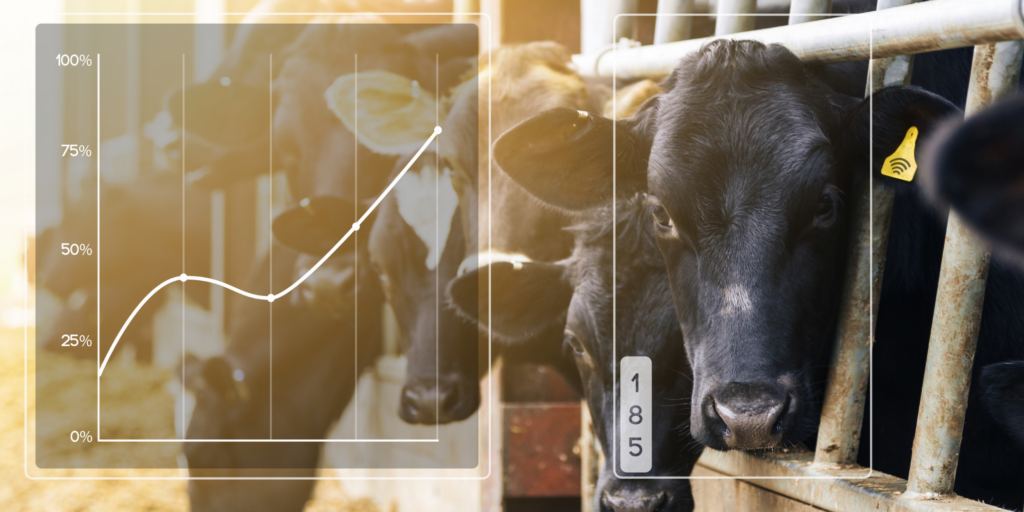Farming is the lifeblood of the African economy, serving as a linchpin for livelihoods, sustenance and economic growth. Employing vast swathes of the population, particularly in rural areas, agriculture is the primary source of income for millions of households. This sector not only provides food for the continent’s growing population but also contributes significantly to its GDP, often accounting for a third or more of the total economic output. Therefore, efficiency is paramount—which is why agritech in Africa is a hot topic.
Agritech in Africa is more than just a technological upgrade; it’s a lifeline. By harnessing the power of data, technology and advanced machinery, farmers are empowered to overcome the unique hurdles they face, such as unpredictable weather patterns and limited resources. From precision farming techniques that optimise resource use to digital platforms that connect farmers to markets and financial services, agritech is changing the game.
In this article, I’ll outline a real-world example of agritech’s transformative power in Africa. We’ll explore how a strategic partnership between a forward-thinking agritech startup and my consultancy led to a significant value chain expansion in the African market. This case study showcases the immense potential of agritech to address food security, boost economic growth and create a more sustainable future for the continent and, indeed, the world.
Table of Contents
Why do we use smart agriculture?
The world’s population is booming, and with it, the demand for food. Beyond its immediate impact on employment and sustenance, farming plays a crucial role in driving other sectors of the economy. It provides raw materials for industries like food processing, textiles and manufacturing, creating a ripple effect of economic activity. Agricultural exports also generate vital foreign exchange earnings, contributing to the continent’s trade balance and overall economic stability.
Yet, traditional farming methods are increasingly strained, facing challenges from climate change, resource scarcity, and a shrinking agricultural workforce. Indeed, these challenges resemble those of many industries, and the solutions bear a similar likeness: driving greater efficiency with technology.
At its core, smart agriculture leverages technology to optimise every aspect of farming, from planting to harvest. Sensors, drones, satellite imagery and data analytics work together to give farmers real-time insights into their crops and livestock. This data-driven approach allows for precision farming, where resources like water, fertilisers and pesticides are applied only where and when needed, reducing waste and minimising environmental impact.
Beyond environmental benefits, smart agriculture promises to improve productivity and profitability. By automating tasks, reducing labour costs and optimising yields, farmers can achieve higher profits while ensuring a consistent food supply. This is particularly important in regions facing labour shortages or where small-scale farmers struggle to compete.
Why is agritech in Africa a powerful proposition?
Agritech in Africa is particularly relevant to the continent’s unique hurdles. Erratic weather patterns, exacerbated by climate change, wreak havoc on crops and livestock. Limited access to resources like water and fertilisers, coupled with a lack of infrastructure, further hampers productivity. Meanwhile, traditional farming practices often struggle to keep pace with the growing demand for food.
Agritech offers a transformative solution. Harnessing the power of data, technology and advanced machinery equips farmers with the tools to overcome these obstacles. Precision farming techniques, for example, enable farmers to optimise water and fertiliser use, boosting yields while conserving precious resources. Satellite imagery and weather forecasts help predict droughts and pests, allowing for early interventions that protect crops and livelihoods.
Smart agriculture isn’t just about technology; it’s about empowering farmers, who are the backbone of much of Africa’s economy. With exploding mobile penetration and digital literacy, farmers are empowered to make informed decisions, negotiate fair prices, and secure loans, breaking the cycle of poverty and boosting economic growth.
As the continent stands at a crossroads, agritech in Africa offers a path toward a more prosperous and sustainable future. It’s a testament to the ingenuity and resilience of a continent embracing technology to cultivate a brighter tomorrow. I have been involved with some fascinating initiatives in the agritech sector in Africa, one of which I’ll share here.

Agritech in action: Value chain expansion
My client, an African agritech start-up, develops proprietary hardware and software solutions to make African farmers and food factories more efficient and profitable. They created a proprietary deshelling machine for palm oil that was 85% more productive than other models on the market. The client uses this machinery to process oil palms in their own facilities while selling and leasing them to other processors.
Following their latest Series A fundraising round, the client sought to expand their business and needed support to identify the most attractive opportunities for value chain expansion. They specifically wanted to know:
- What other commodities to build solutions for
- What part of the commodity value chain to play in
- What countries/markets to focus on
- Where to set up their processing facility and factory
With these insights, they could roll out these game-changing technologies to the most sustainable markets and maximise their reach across the continent. The productivity gains across the agriculture sector were set to be substantial, so it was a very intriguing challenge.
The method
To pinpoint the most lucrative opportunities for value chain expansion for the client, I employed a rigorous, three-step funnel methodology. This strategic approach involved systematically refining our focus, beginning with a broad landscape analysis and culminating in the identification of specific, high-potential targets aligned with our client’s unique objectives.
Market sizing
The landscape analysis began with a foundational question: What is the agricultural production of Africa? We started with a comprehensive list of crops that grow in the region, identifying 105 potential commodities. This identification was supported by subject matter experts and data from the Food and Agricultural Organization (FAO) and the African Development Bank Group (AFDB).
We then sized the top 10 markets for each commodity using data from the FAO, AFDB, and other relevant sources. This process helped us narrow the list to 25 commodities based on total market size.
Market attractiveness
We then conducted 15 interviews with African subject matter experts to refine the list further. In collaboration with the client, we developed screening criteria to assess the attractiveness of each commodity. The primary criterion was identifying products where the deshelling hardware could be effectively applied, improving processing efficiency similar to that witnessed in the deshelling of oil palm. Ideally, this would require minimal adjustments or alterations to the current machinery. Other criteria included:
- Capex requirement for entry
- Time to set up a new factory or facility
- Planting cycle for input crop
- Value creation opportunity
- Availability of required talent
We further refined the list to six commodities using data from interviews and secondary sources. For these six commodities, we selected the most attractive markets for entry based on criteria co-developed with the client, including ease of doing business, the number of days required to open a business, and the nation’s geopolitical risk ranking.
To validate our selection, we conducted 12 interviews with agripreneurs in each selected market. Based on these interviews, we recommended that acquiring an existing agricultural processing factory would be more advantageous than building a new facility. The client agreed with our recommendation.
Target search and screening
We embarked on a site and factory search for the client in the target markets. We identified 35 factories across ten countries, then reviewed the list with five subject matter experts and the agripreneurs from our initial interviews. This process allowed us to narrow the list down to 25. Through our experts, we reached out to these factories, and 20 were willing to discuss acquisition opportunities. We then presented this list to the client.
Summary of approach
- Conducted a market sizing exercise, compiling a list of 105 potential commodities, which was narrowed to 25 based on market size data.
- Analysed market attractiveness by conducting expert interviews with client-defined criteria.
- Selected six commodities in top markets and identified 25 prospective targets.
- Negotiations were opened with those open to acquisition, and the final list was presented to the client.
The results
Through meticulous research, expert interviews, and close collaboration with the client, we successfully delivered a comprehensive roadmap for their value chain expansion in agritech in Africa. This roadmap pinpointed high-potential commodities and markets, outlined optimal value chain positioning and entry strategies and identified potential partners for joint ventures or acquisitions.
In essence, this roadmap addressed three fundamental questions to guide the client’s strategic expansion:
- Where to play: Identifying the most lucrative commodities and markets for investment.
- How to play: Optimising profitability within the value chain and determining the most effective entry strategy.
- Who to play with: Establishing strategic partnerships with potential factories for joint ventures or acquisitions.
Our strategic guidance proved instrumental in driving significant positive outcomes for the client. Within the first year, they successfully expanded into three new high-potential markets, capitalising on the identified opportunities for substantial growth. By opting for acquisitions of existing factories, the client reduced capital expenditure by 30% compared to building new facilities, accelerating their time to market and yielding quicker returns on investment.
Furthermore, the targeted approach to commodity and market selection, along with strategic acquisitions, led to a remarkable 25% increase in overall profitability within 18 months. These achievements have solidified the client’s position as a leading player in agritech in Africa, boasting a diversified portfolio and a strong foothold in key markets.
Summary of achievements
- Delivered a comprehensive roadmap for value chain expansion in agritech in Africa.
- Identified high-potential commodities and markets for investment.
- Outlined optimal value chain positioning and entry strategies.
- Facilitated strategic acquisitions, resulting in a 30% reduced capital expenditure.
- Achieved a 25% increase in overall profitability within 18 months.
A key catalyst for transformation in African agriculture
This case study illustrates the transformative power of agritech in Africa, demonstrating how strategic consulting and targeted investments can unlock new opportunities and drive significant growth in the agricultural sector. By embracing innovative technologies and data-driven approaches, agritech startups and established players alike can address food security challenges, boost productivity, and create solutions that are sustainable both environmentally and financially.
Our client’s value chain expansion took them from a startup with a single proprietary technology to a leading agritech player in Africa, highlighting the immense potential of this dynamic sector. We achieved remarkable results through strategic market analysis, value chain optimisation, and targeted acquisitions, including significant cost savings, increased profitability and expanded market reach.
This success story serves as an inspiration for other businesses seeking to tap into the vast potential of agritech in Africa. With its growing population, abundant resources and increasing demand for food, the continent offers a fertile ground for innovation and growth in agriculture. By partnering with experienced management consultants and digital transformation experts, businesses can navigate the complexities of this market, identify lucrative opportunities, and unlock their full potential. Whether you’re a startup seeking to scale your operations or an established player looking to expand into new markets, Outvise can provide the expertise and guidance you need to succeed in the rapidly evolving African agritech landscape. The network of seasoned consultants, including myself, has a proven track record of helping businesses achieve their goals through strategic planning, market analysis, and operational optimisation. Take a look.
He is currently the Transformation Lead at Inchcape Shipping Services. With over 10 years of experience across various sectors, he specialises in financial services, digital transformation, project management, and consulting. Mofe plays a pivotal role in driving end-to-end process improvements in the foreign exchange (FX) and payments domain, with a strong emphasis on operational efficiency and automation.




No comments yet
There are no comments on this post yet.